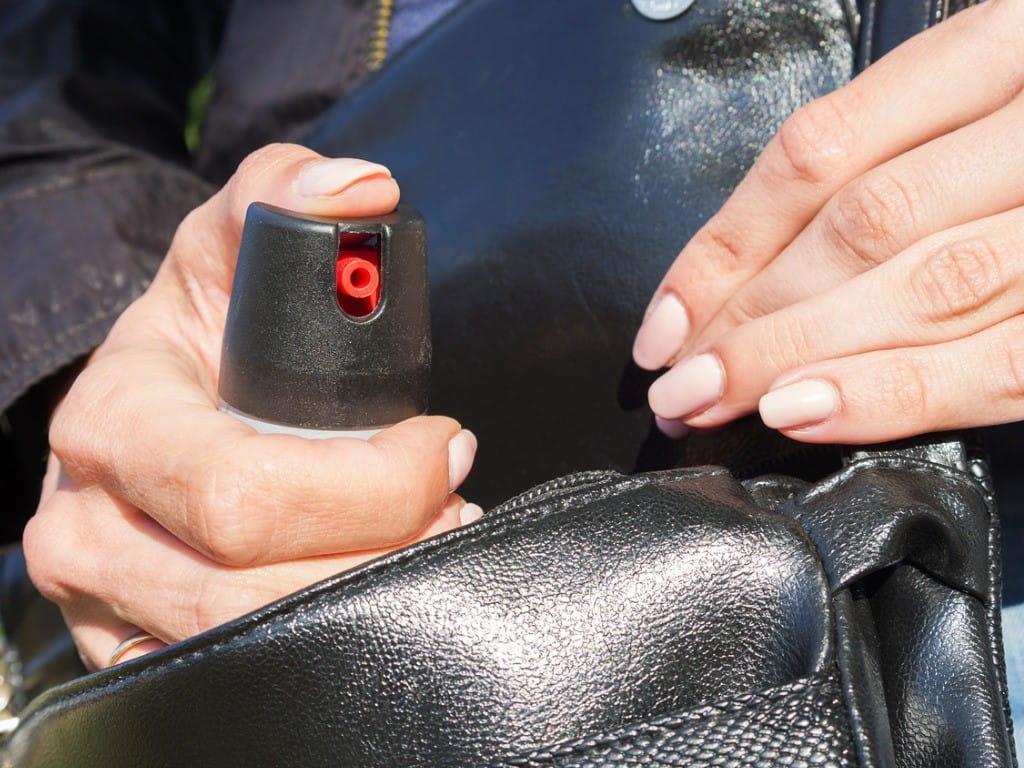Table of Contents
- Understanding the Immediate Physical Reactions to Pepper Spray Exposure
- Essential First Aid Steps to Minimize Discomfort and Avoid Complications
- Long-Term Care and When to Seek Professional Medical Assistance
- Preventative Measures to Avoid Accidental Exposure in Everyday Situations
- In Conclusion
Understanding the Immediate Physical Reactions to Pepper Spray Exposure
When pepper spray makes contact with the skin, eyes, or respiratory system, the body’s immediate response is designed to protect you by triggering intense irritation. The eyes typically react with severe burning, redness, and involuntary tearing, making it difficult to keep them open. Skin exposure results in a sharp, burning sensation accompanied by redness and inflammation. Inhalation causes coughing, choking, and shortness of breath as the mucous membranes become inflamed. These physical reactions are the body’s natural defense mechanisms aimed at flushing out the irritant as quickly as possible.
Understanding these symptoms can help you recognize pepper spray exposure instantly and take appropriate actions faster. Pay attention to signs such as:
- Profuse tearing and eye discomfort preventing clear vision.
- Burning or stinging sensations on the face and exposed skin.
- Difficulty breathing or dry cough caused by respiratory tract irritation.
- Runny nose and nasal irritation.
Knowing how your body will likely respond enables you to remain calm and focus on decontamination rather than panic, which is essential for a safe recovery.
Essential First Aid Steps to Minimize Discomfort and Avoid Complications
The immediate priority after accidental pepper spray exposure is to remove yourself from the contaminated area to avoid further irritation. Once safe, gently flush the affected skin and eyes with cool, clean water for at least 15 minutes. Avoid rubbing or touching the irritated areas, as this can exacerbate the burning sensation. Using a saline solution or distilled water for eye irrigation is ideal since it helps soothe without adding additional contaminants. If contact lenses are worn, carefully remove them after initial rinsing to prevent trapping the irritant against the eyes.
In addition to flushing, refrain from applying creams, oils, or ointments as these can trap the chemical and delay healing. Instead, wear loose, comfortable clothing and allow your body’s natural recovery mechanisms to work. Over-the-counter pain relievers such as ibuprofen may help reduce inflammation and discomfort, but seek medical assistance if symptoms worsen or persist beyond 24 hours. Remember, while pepper spray effects are typically temporary, swift and careful first aid can significantly reduce discomfort and prevent complications such as infections or lasting irritation.
- Skip tight clothing: Avoid anything that might irritate the skin further.
- Keep calm: Panic can intensify breathing difficulties.
- Seek fresh air: This aids in diminishing respiratory irritation.
- Consult a healthcare professional: If symptoms like difficulty breathing, severe swelling, or vision problems arise.
Long-Term Care and When to Seek Professional Medical Assistance
Most cases of accidental pepper spray exposure can be managed safely at home with immediate and appropriate first aid. However, understanding when professional medical help is necessary is crucial to prevent complications. If symptoms persist beyond 30 minutes, such as intense eye pain, blurred vision, or difficulty breathing, it’s important to seek prompt medical assistance. Additionally, individuals with pre-existing respiratory conditions, children, or the elderly should be closely monitored, as they are more vulnerable to severe reactions and may require urgent evaluation.
Monitor for warning signs such as:
- Severe or worsening respiratory distress
- Persistent chest tightness or wheezing
- Swelling of the lips, tongue, or throat
- Inability to open eyes or intense eye discomfort despite rinsing
- Signs of an allergic reaction like hives or dizziness
If any of these symptoms occur, don’t hesitate to call emergency services or visit the nearest healthcare facility. Timely professional intervention can be lifesaving and helps ensure a safe recovery after accidental exposure to pepper spray.
Preventative Measures to Avoid Accidental Exposure in Everyday Situations
Taking proactive steps can significantly reduce the risk of accidental pepper spray exposure, especially in everyday settings like your home, workplace, or while commuting. Always store pepper spray in a secure and clearly marked container, away from children and pets, and never carry it loosely in your bag where it might accidentally discharge. Regularly check that the safety mechanisms are intact and functioning, and consider purchasing models with enhanced safety locks. When handling or using pepper spray, ensure you are in a well-ventilated area, standing with the wind at your back to minimize blowback risks.
Additionally, educate yourself and those around you about the proper use and potential hazards of pepper spray. Cultivating awareness can prevent mishaps, especially in crowded or confined spaces. Adopt these simple yet vital habits to fortify safety:
- Practice handling your pepper spray to familiarize yourself with the spray range and activation method.
- Avoid spraying indoors or near flammable materials to prevent dangerous irritant buildup or fires.
- Label your spray clearly and keep it separate from other personal items to prevent confusion or accidental use.
In Conclusion
In conclusion, encountering accidental pepper spray exposure can be overwhelming, but staying calm and following the right steps can make all the difference. By promptly rinsing your eyes and skin, avoiding rubbing the affected areas, and seeking medical attention if necessary, you can minimize discomfort and potential complications. Remember, prevention is key-always handle pepper spray with care and be aware of your surroundings. Staying informed and prepared ensures that, even in unexpected situations, you can protect yourself safely and effectively. Stay safe out there!Check Our Other Blogs
- StunGun – Your Trusted Source for Stun Guns, Laws, and Self-Defense Tips
- PepperSprayLaws – Your Trusted Resource for Pepper Spray Information
- StunGunLaws – Your Trusted Guide to Stun Gun Legality and Safety




